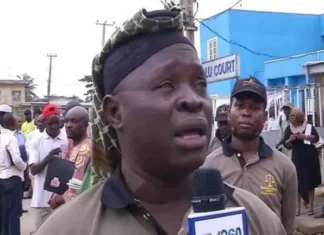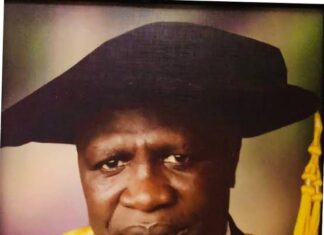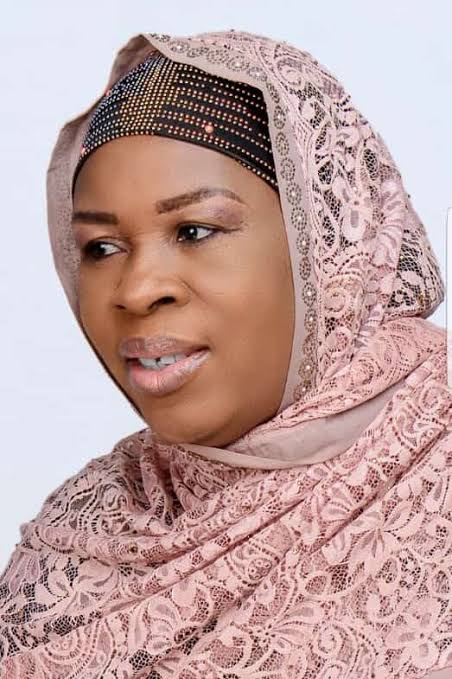At a time when the female folks were totally alienated from masculine duties and a society where they were conspicuously marginalised, Ahebi Ugbabe was born at Umuida, Enugu-Ezike, present-day Enugu State, around the year 1880 where she lived with her father, Ugbabe Ayibi and her mother, Anekwu Ameh. Ugbabe’s father was a palm wine tapper and a farmer, while her mother was a farmer as well and an occasional trader. She grew up with two other siblings who were boys.
While growing up, apparently in her teenage years, the family suffered a series of misfortunes. Her parents’ farms lacked yield; her mother’s trade collapsed and illness beset them. In a bid to find out what was wrong with the family, the senior Ugbabe consulted a spiritualist who revealed that the father had offended Ohe, the goddess. The spiritualist, however, said the only solution was that his daughter would be offered in marriage to appease the goddess.
Not wanting to suffer for her father’s sins, Ahebi fled to Igala, which is north to Nsukka. To be married to a deity in compensation for her father’s criminality was too much for her to bear. The result of the marriage would make Ugbabe Ayibi an in-law of a goddess, a known penalty in 19th century northern Igboland.
When Ahebi got to Igala, she was very young, without any handwork and education. She was alone. She was on her own.
The young girl then travelled around the Igala area up to the land of the Tapa, looking for work but she couldn’t get one. In the process, she resorted to becoming an autonomous sex worker (a prostitute) and used this work to her advantage, learning to speak diverse languages. In addition to her Igbo tongue, Ahebi could speak Igala, Nupe and Pidgin English.
With the money she made from prostitution, Ahebi Ugbabe then ventured into business which solidified her as a successful foreigner in Igala. She traded in palm oil and horses and was one of the most influential horse traders in the borders of the Igala-Igbo lands.
Her profession, success as a businesswoman, and her linguistic skills would give her access to many people in high authority, including the Attah (king) of Igala and the British colonialists who would later support her to be a warrant chief among her people.
In 1909, the British colonialists invaded Enugu and settled there after the discovery of coal exerting themselves on the locals with their intimidating attacks.
With her connection with the British Divisional Officer at Igala, Ahebi was able to introduce the colonialists to Enugu-Ezike, showing them unknown routes, so that they could conquer the locals and do away with the traditions that made her flee in the first place. For this, she was able to court the respect and alliance of the British.
Around the year 1918, Ahebi Ugbabe returned home. As a polyglot, it gave her an undue advantage and the ability to lead a united people of Igala and Nupe to her homeland. In fact, she was the only one in her village who could communicate with the colonialists, playing a mediator or spokesperson role between the white man and her people.

The Rise to Power
When Ahebi Ugbabe returned to her village, she was able to displace Ogwu Okegwu, the man the British had put as the village headman. A headman in the British colonial system in Eastern Nigeria was to govern the village under the supervision of a Divisional Officer who was usually British.
This system of government was unpopular among the locals and the headman was usually ceremonial. However, Ahebi’s rise would change everything.
Okegwu did not have Ahebi’s linguistic abilities and as I had written earlier, she was the only one who could communicate in English with the colonialists in her whole village.
Therefore, barely months after returning from exile in 1918, the British appointed Ahebi as a warrant chief; the only woman in colonial Nigeria to be appointed thus. It was permissible to the colonialists because Ahebi had helped them in conquering her village.
As expected, the male chiefs resisted Ahebi’s appointment, especially as she was a woman. But their dissent voices were subdued because of the British support to Ahebi. As a result, to consolidate her power, she alienated them from the affairs of the state.
As time went on, Ahebi did not care and she did the unprecedented and unbearable! Achebe described it as an ife di egwu (thing of great incredulity). She wanted to become a king, not an Eze nwanyi, to bring her people to total subjection. She was ready to transform from a woman to a man and her government to a powerful female-based system mirroring that of the Queen of England. In the midst of all these, the British turned a blind eye to her atrocities as they felt the colonial machine system is still functioning.
The Female Leopard
As it was anomalous for a woman to be king in Igboland, Ahebi travelled to Igalaland where she held her coronation. She was crowned by the Attah of Igala amidst great celebrations. For a woman to be king was not strange to the Igala people as they once had a woman as a king around the 1500s. As a matter of fact, she was their first Attah.
So, the Igala people honoured the new king and sang many songs enhancing Ahebi’s kingly qualities. They did these for days.
Back home in Enugu-Ezike, the locals were sad and angry with Ahebi, and they sang negative songs about her. But as a king and warrant chief, she wanted to be respected by her people and intimidated them with stories that struck fear into their hearts. This worked well and the people tagged her an Agamega (a female leopard).
The Beginning of the End
Well entrenched in her reign, King Ahebi Ugbabe began to hold court cases in her palace while making money from the services. Women who had also been abused by their husbands escaped to Ahebi’s palace who then became their “female husband”. Ahebi married wives for herself and for her two brothers by paying their “bride price”. She then looked for men who had intercourse with these wives and claimed the “paternity” of the children they bore. She assumed the role of a man and named the children after herself.
Ahebi also bought slaves and had many female workers who were of great help to the British colonial officers in Enugu-Ezike.
The king also hosted a school in her palace to teach the people after some Roman Catholic missionaries visited Enugu-Ezike in the 1930s and informed the warrant chiefs to establish schools in order to educate the locals.
With time, many of the people became sick and tired of Ahebi’s autocratic rule. They also condemned her sacrilegious ways where she refused to consult with the chiefs, received bribes and took other men’s wives by force.
The next step she took really made the people turned against her and made her do another unimaginable thing in the land.
Ahebi Ugbabe wanted to become a full man. Thus, she unveiled her masked spirit which was called Ekpe Ahebi. In the Igbo society, it was a taboo for a woman to have control over a masked spirit. She was not in a position to create one and this was the highest form of crime.
Nevertheless, Ahebi nearly had her way after the masked spirits had concluded their performances with a bow. When it was her turn, the male elders escorted the masked spirit, kept it away and destroyed it. Ahebi’s chalice had reached the brim with the locals. They wanted her out. They wanted a return to the sanity that Enugu-Ezike had always been known for traditionally.
As expected, the king was not happy with the elders and she ordered them to court. Unfortunately, it turned out to be a grave mistake. They argued before the Resident Officer at Onitsha that Ahebi had no right to create a masked spirit as she was a woman. Ahebi had thought she would win the case easily but after everything she had done for the British, they betrayed her. The colonialists had no use for her anymore because Enugu-Ezike and the villages were now in their control.
The Resident Officer supported the elders’ claim that Ahebi had passed her boundaries as a warrant chief and that she was just an ordinary woman who was not fit to be king. As a result, the people of Enugu-Ezike and the elders decided that no ruler would ever rule the community, regardless of gender.
This made King Ahebi Ugbabe, the first and last ruler of Enugu-Ezike. Although she remained king until she died in 1948, her respect and awe had dissipated compared to the early years of her reign.
With the fear that her people might not accord her a rightful burial, she performed her own funeral rites in 1946, two years before her death.
Follow the Neptune Prime channel on WhatsApp:
Do you have breaking news, interview request, opinion, suggestion, or want your event covered? Email us at neptuneprime2233@gmail.com













